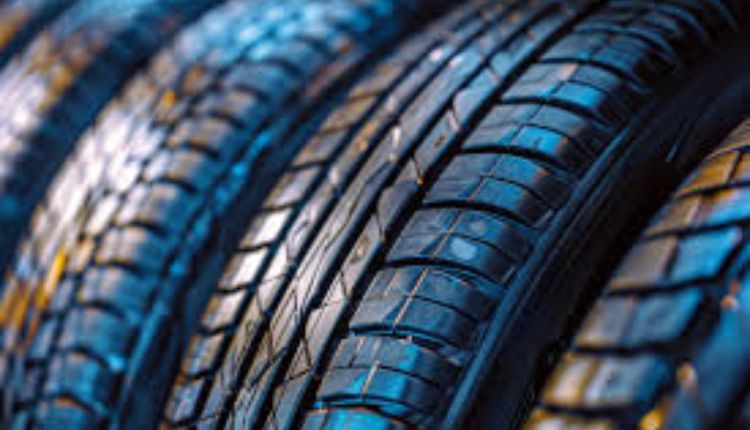Tires play a crucial role in vehicle performance and safety. If you choose the proper tires, you’ll drive better and feel more secure, plus you’ll save money by not having to patch up or change tires frequently. Picking new tires can feel tricky, can’t it?
When selecting tires, it’s worth checking out BF Goodrich tires reviews. They are generally very positive and are praised for excellent off-road toughness, durability, and strong traction across various terrains like mud, sand, and rocks.
Apart from looking at their reviews, this blog thoroughly compares the pros and cons of popular models so that you can make the most informed decision for your needs.
Performance Tires
Performance tires are designed for those who value speed and handling. They help your car grip the road firmly and react quickly on sharp corners.
Advantages
Performance tires grip the road tightly, making your car feel much steadier, especially at higher speeds. Drivers of quick cars will really love this. Your vehicle will stop faster, giving you better control when you hit the brakes hard. That better handling makes every drive feel smooth. It’s pure joy for anyone who truly loves getting behind the wheel.
Disadvantages
Due to their softer rubber composition, these tires tend to wear out faster than other types. This means bigger bills when you need to replace things later on. They may also provide a firmer ride, which might not suit those seeking comfort. Performance tires slip and slide in wet or snowy weather, reducing their everyday use.
All-Season Tires
All-season tires are popular for their adaptability. You can count on these no matter the forecast, giving you an easy option for your drives.
Advantages
One key benefit is their versatility. They perform well in different climates, from warm summers to mild winters. This flexibility reduces the need for seasonal tire changes. All-season tires have a longer lifespan than performance options, offering better value—their design balances comfort and handling, providing a smooth and stable ride.
Disadvantages
While versatile, all-season tires may not excel in extreme conditions. Their performance in heavy snow or on icy roads can be limited. Some drivers may find their handling less precise compared to specialized options. You won’t get the exact road grip or quick reactions as performance versions, which changes how your car moves.
Winter Tires
Winter tires are essential for those living in regions with harsh winters. You’ll stay firm on the road, gripping well through snow and ice.
Advantages
The primary advantage is their ability to handle extreme cold and slippery surfaces. Their specific grooves and rubber mixtures stay flexible. This keeps them soft even when temperatures drop. Staying put is easier now, making everything much less risky. On ice, winter tires really shine. They help your car stop much quicker, cutting down accident chances.
Disadvantages
Winter tires are not suitable for warm climates. Using them in mild weather quickly wears them down and makes them less effective. You’ll also need to swap them out once the season finishes, which means more upkeep work. Picture your commute; these tires hum louder than most, making your trips less peaceful.
Off-Road Tires
Off-road tires are for those who frequently venture onto rugged terrain. They can handle really tough environments, gripping uneven ground with confidence.
Advantages
Drivers who love hitting the trails will find these tires grab hold of mud, rocks, and gravel with serious strength. Thanks to their tough, reinforced sides, you’ll find these hold up much better. Thanks to their solid, deep-cut treads, off-road tires shrug off dirt and rocks. They grab the ground better, making tough paths much easier to navigate.
Disadvantages
Off-road tires can be less efficient on paved roads. Their heavy build may increase road noise and decrease fuel efficiency. The ride can also feel rougher compared to standard options. Since they’re built for specific tasks, these vehicles often feel clunky and inefficient during daily errands or commutes.
Touring Tires
Touring tires are designed for comfort and long-distance travel. They hit the sweet spot, giving you incredible power without much noise.
Advantages
When you’re driving for hours, these tires truly perform. They absorb all the road’s imperfections, making long trips easy and calm. You’ll appreciate how long touring tires hold up, keeping money in your pocket since replacements aren’t needed as often. These tires are dependable and always work well, no matter the circumstances. You get solid handling and feel secure.
Disadvantages
While comfortable, touring tires may lack the precision and grip of performance models. Their handling might not satisfy those looking for sporty driving dynamics. Their performance can be limited in extreme winter conditions, necessitating a switch to winter tires.
Conclusion
Selecting the right tire model depends on individual driving needs and conditions. Performance, all-season, winter, off-road, and touring tires offer unique benefits and drawbacks. Drivers who grasp these tire differences can pick the perfect set for their life and local roads. Your choice needs to be safe, comfy, and effective.






